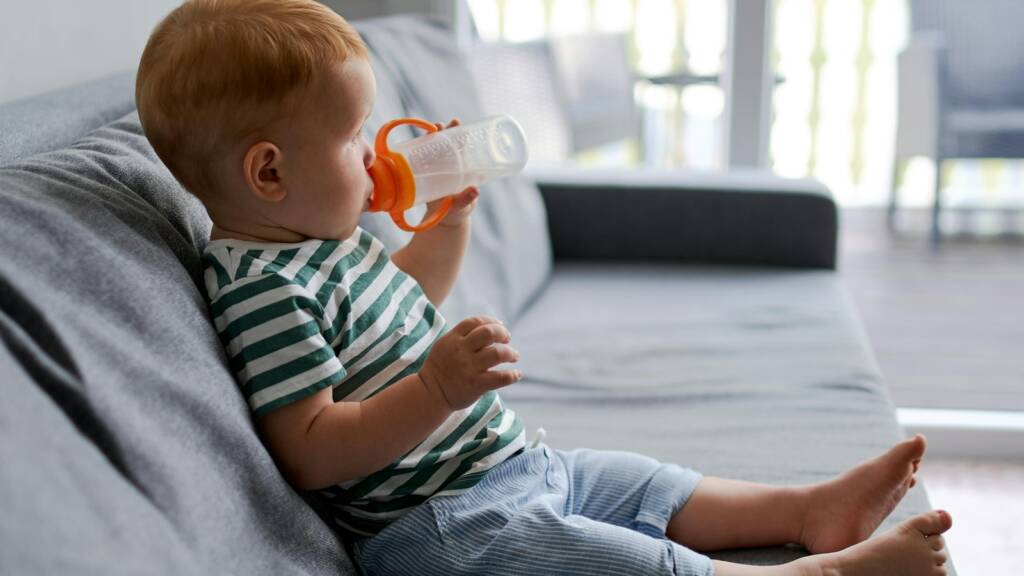Importance of Hydration for Babies
Proper hydration is a cornerstone of your baby’s health and development. Ensuring that your baby receives the right amount of fluids is crucial for their bodily functions, including digestion, temperature regulation, and overall growth. This comprehensive guide will delve into every aspect of hydration for your baby, offering practical tips and expert advice to keep your little one properly hydrated.
Overview of the Article
This article covers a wide range of topics related to baby hydration, from understanding hydration needs at different ages to addressing hydration during illness and travel. By the end of this article, you will have a thorough understanding of how to maintain proper hydration for your baby under various circumstances.
Understanding Baby Hydration
What is Hydration?
Hydration refers to the process of maintaining adequate fluid balance in the body. For babies, this means ensuring they have enough fluids to support their rapid growth and high metabolic rate.
Why is Hydration Crucial for Babies?
Babies have a higher percentage of body water compared to adults, making them more susceptible to dehydration. Proper hydration supports vital bodily functions such as nutrient transportation, waste elimination, and temperature regulation.
Signs of Proper Hydration
Recognizing the signs of proper hydration can help you ensure your baby is getting enough fluids. These signs include:
- Regular wet diapers (at least six per day for newborns)
- Clear or light-colored urine
- Moist mucous membranes (inside of the mouth)
- Elastic skin that returns quickly when gently pinched
Hydration Needs by Age
Newborns (0-6 months)
For newborns, breast milk or formula provides all the necessary hydration. Frequent feeding is essential to meet their hydration needs. Typically, newborns should be fed every 2-3 hours.
Infants (6-12 months)
As babies begin to eat solid foods, they still rely heavily on breast milk or formula for hydration. At this stage, introducing small amounts of water can help meet their hydration needs without replacing milk feeds.
Toddlers (12-24 months)
Toddlers require a balanced intake of fluids from milk, water, and hydrating foods. Encouraging regular drinking habits and offering water throughout the day can help maintain proper hydration.

Breastfeeding and Hydration
Role of Breast Milk in Hydration
Breast milk is perfectly designed to hydrate newborns and infants. It contains the right balance of nutrients and fluids to support your baby’s needs.
Benefits of Breastfeeding for Hydration
Breastfeeding not only provides optimal hydration but also strengthens the immune system and fosters a strong mother-child bond. It adapts to your baby’s needs, offering more fluids during hot weather or when your baby is sick.
Tips for Effective Breastfeeding
Ensure proper latch and feeding positions to facilitate effective breastfeeding. Feed on demand and monitor your baby’s growth and diaper output to gauge adequate hydration.
Formula Feeding and Hydration
Choosing the Right Formula
Select a formula that meets your baby’s nutritional needs and is appropriate for their age. Consult with your pediatrician to choose the best option.
Preparing Formula Safely
Always follow the manufacturer’s instructions for preparing formula. Use clean, boiled water and sterilized bottles to prevent contamination.
Frequency and Quantity of Formula Feeding
Feed your baby according to their hunger cues and ensure they are getting the right amount of formula based on their age and weight. Regular feeds help maintain hydration.
Introducing Water to Babies
When to Introduce Water
Water can be introduced to babies around 6 months of age when they start eating solid foods. Before this, breast milk or formula provides sufficient hydration.
How Much Water is Enough?
Start with small sips of water during meals and gradually increase the amount. Aim for 2-4 ounces of water per day, depending on your baby’s needs and overall fluid intake from milk.
Tips for Introducing Water
Use a sippy cup or small open cup to introduce water. Make it a fun experience by offering water during mealtimes and encouraging your baby to drink.
Hydration and Solid Foods
Role of Solid Foods in Hydration
Certain solid foods contribute to your baby’s hydration. Fruits and vegetables with high water content, such as watermelon, cucumbers, and oranges, can supplement their fluid intake.
Hydrating Foods for Babies
Incorporate hydrating foods into your baby’s diet. Offer pureed fruits, vegetable soups, and yogurt to keep your baby well-hydrated.
Balancing Solids and Fluids
Maintain a balance between solid foods and fluids. Ensure your baby continues to receive adequate milk feeds while gradually increasing their intake of hydrating solids.
Hydration During Illness
Common Illnesses Affecting Hydration
Illnesses such as fever, diarrhea, and vomiting can lead to dehydration. It’s crucial to monitor your baby’s fluid intake during these times.
Recognizing Dehydration Signs During Illness
Signs of dehydration during illness include dry mouth, decreased urine output, lethargy, and sunken eyes. Promptly address these symptoms to prevent severe dehydration.
Managing Hydration in Sick Babies
Offer frequent small sips of fluids, including oral rehydration solutions if recommended by your pediatrician. Continue breastfeeding or formula feeding and monitor your baby’s hydration closely.
Seasonal Hydration Needs
Hydration in Hot Weather
In hot weather, babies may require additional fluids to stay hydrated. Increase breastfeeding or formula feeds and offer water to older babies.
Hydration in Cold Weather
During cold weather, indoor heating can cause dehydration. Ensure your baby stays hydrated by maintaining regular feeds and offering water as needed.
Adapting Hydration Practices Seasonally
Adjust your baby’s hydration practices based on the season. Pay attention to their cues and provide extra fluids during extreme weather conditions.
Hydration Myths and Misconceptions
Debunking Common Myths
There are many myths about baby hydration, such as the belief that water is necessary for newborns. Understanding the facts can help you make informed decisions.
Understanding Hydration Facts
Babies under 6 months do not need water; breast milk or formula suffices. Introducing water too early can interfere with nutrient absorption.
Reliable Sources for Hydration Information
Consult reliable sources like pediatricians, reputable parenting websites, and health organizations for accurate information on baby hydration.
Monitoring Hydration Levels
Recognizing Signs of Dehydration
Signs of dehydration include fewer wet diapers, dark urine, dry lips, and excessive fussiness. Regularly check for these indicators to ensure proper hydration.
Tools for Monitoring Hydration
Use tools such as diaper charts and hydration trackers to monitor your baby’s fluid intake and output. These tools help you stay on top of your baby’s hydration needs.
When to Seek Medical Advice
Seek medical advice if you notice persistent signs of dehydration or if your baby is not responding to increased fluid intake. Prompt medical attention is crucial in severe cases.
Common Hydration Mistakes to Avoid
Overhydration and Its Risks
Overhydration can dilute essential nutrients and strain the kidneys. Avoid offering excessive fluids, especially water, to young babies.
Underhydration and Its Impact
Underhydration can lead to serious health issues, including kidney problems and developmental delays. Ensure your baby receives adequate fluids daily.
Correcting Hydration Mistakes
Correct hydration mistakes by consulting with healthcare professionals and adjusting your baby’s fluid intake as needed. Follow recommended guidelines for feeding and hydration.
Practical Tips for Ensuring Proper Hydration
Establishing a Hydration Routine
Create a consistent hydration routine by offering regular feeds and fluids. A routine helps your baby develop healthy drinking habits.
Encouraging Healthy Hydration Habits
Encourage healthy hydration habits by making fluids accessible and appealing. Use fun cups, offer variety, and set a positive example.
Creative Ways to Keep Babies Hydrated
Keep your baby hydrated with creative methods like making hydrating snacks, using flavored water, and incorporating fluids into playful activities.
Hydration and Special Needs Babies
Tailoring Hydration Practices
Tailor hydration practices to meet the specific needs of special needs babies. Consult healthcare providers for personalized hydration plans.
Consulting Healthcare Providers
Work closely with healthcare providers to ensure your special needs baby receives adequate hydration. Regular check-ups and monitoring are essential.
Managing Hydration Challenges
Address hydration challenges by using adaptive tools and techniques. Specialized feeding equipment and support can help manage hydration effectively.

Environmental Factors Affecting Hydration
Impact of Climate on Hydration
Climate affects your baby’s hydration needs. Hot and dry climates increase fluid requirements, while humid conditions may alter hydration needs.
Indoor vs. Outdoor Hydration Needs
Indoor environments with heating or air conditioning can cause dehydration. Monitor and adjust fluid intake based on indoor and outdoor activities.
Creating a Hydration-Friendly Environment
Create a hydration-friendly environment by keeping fluids accessible, maintaining a comfortable temperature, and ensuring proper ventilation.
Travel and Hydration
Preparing for Travel with Your Baby
Prepare for travel by packing enough fluids and hydrating snacks. Plan for regular hydration breaks and monitor your baby’s fluid intake.
Hydration Tips for Short Trips
For short trips, carry a sippy cup or bottle with water or milk. Offer fluids frequently to prevent dehydration during travel.
Managing Hydration During Long Journeys
For long journeys, plan ahead by packing extra fluids and using insulated containers to keep drinks cool. Monitor your baby’s hydration and take breaks to offer fluids.
Role of Electrolytes in Baby Hydration
Understanding Electrolytes
Electrolytes are minerals that help maintain fluid balance in the body. They are crucial for proper hydration and bodily functions.
Electrolyte Solutions for Babies
Electrolyte solutions can be used during illness or dehydration to replenish lost minerals. Consult your pediatrician before using these solutions.
When to Use Electrolyte Solutions
Use electrolyte solutions during episodes of diarrhea, vomiting, or severe dehydration. Follow medical advice for appropriate usage.
Hydration and Physical Activity
Hydration Needs During Physical Play
Physical play increases your baby’s fluid needs. Offer water or milk before, during, and after playtime to keep them hydrated.
Safe Hydration Practices
Ensure safe hydration practices by using clean bottles and monitoring your baby’s fluid intake. Avoid sugary drinks and offer age-appropriate fluids.
Balancing Activity and Fluid Intake
Balance physical activity with regular fluid intake. Encourage short breaks during play to offer fluids and prevent dehydration.
Hydration Products for Babies
Choosing Baby Bottles and Sippy Cups
Select baby bottles and sippy cups that are easy to use, clean, and safe. BPA-free and ergonomic designs are ideal for young children.
Hydration Accessories
Hydration accessories such as bottle warmers, sterilizers, and insulated containers can help maintain proper hydration on the go.
Evaluating Hydration Products
Evaluate hydration products for safety, ease of use, and effectiveness. Read reviews and consult other parents for recommendations.
Educating Caregivers on Hydration
Communicating Hydration Needs
Communicate your baby’s hydration needs clearly to caregivers. Provide detailed instructions and emphasize the importance of proper hydration.
Training Babysitters and Caregivers
Train babysitters and caregivers on hydration practices, including recognizing signs of dehydration and preparing formula or breast milk.
Sharing Resources and Tools
Share resources and tools, such as hydration charts and feeding schedules, with caregivers to ensure consistent hydration practices.
Long-term Hydration Habits
Building Lifelong Hydration Habits
Encourage lifelong hydration habits by modeling healthy drinking behaviors and making fluids a regular part of your child’s routine.
Transitioning to Toddler Hydration
Transition to toddler hydration by gradually introducing more water and hydrating foods while maintaining milk intake.
Encouraging Self-Regulation
Encourage self-regulation by allowing your toddler to recognize and respond to their thirst cues. Offer fluids regularly and promote independence.
Common Questions and Concerns
Addressing Parental Concerns
Address common parental concerns about hydration, such as fluid intake, water safety, and hydration during illness.
FAQs About Baby Hydration
Answer frequently asked questions about baby hydration, providing clear and concise information to help parents make informed decisions.
Expert Opinions on Hydration
Include expert opinions and advice from pediatricians and nutritionists to provide credible information on baby hydration.










